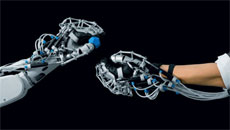Days are not far when we would be able to summon a shower from the sky or trigger lightning at will as researchers have now extended high-intensity laser with hope of stimulating showers.
Water condensation and lightning activity in clouds are linked to large amounts of static charged particles.
Stimulating those particles with the right kind of laser holds the key to possibly one day summoning a shower when and where it is needed, a research says.
Lasers can already travel great distances but "when a laser beam becomes intense enough, it behaves differently than usual - it collapses inward on itself", said Matthew Mills from University of Central Florida (UCF), Arizona.
“The collapse becomes so intense that electrons in the air's oxygen and nitrogen are ripped off creating plasma - basically a soup of electrons,” he added.
At that point, the plasma immediately tries to spread the beam back out, causing a struggle between the spreading and collapsing of an ultra-short laser pulse.
This struggle is called filamentation which creates a filament or "light string" that only propagates for a while until the properties of air make the beam disperse.
"Because a filament creates excited electrons in its wake as it moves, it artificially seeds the conditions necessary for rain and lightning to occur," Mills said.
Since we have control over the length of a filament with our method, one could seed the conditions needed for a rainstorm from afar, said the researchers.
"Ultimately, you could artificially control the rain and lightning over a large expanse with such ideas," the study, published in the journal Nature Photonics, concluded.

